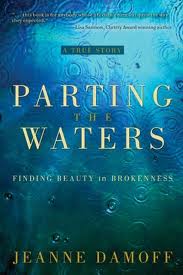 The post is late this morning -- our internet service has been down. But the reads are still just as good. And there are a bunch of them this week.
The post is late this morning -- our internet service has been down. But the reads are still just as good. And there are a bunch of them this week.“Taking Notes” by Bradley Moore at Shrinking the Camel.
“Upon Being Laid Off, aka Set Free” by Mick Silva at Your Writer’s Group.
“Midnight Pianist” and "Six Months is a Lot of Days" by Corinne at Trains, Tutus and Tea Time.
“The Warranty” by Ryan Dueck at Rumblings.
“Am I a Yankee Doodle Dandy?” by Gordon McCleary at A Southern Yankee.
“Little by Little,” "The Politics of Witness" and "Discernment" by Ted Gossard at Jesus Community.
“The Least of These” by Peggy Rosenthal at The Image Journal.
“Eric Wilson’s Open Letter to Readers, Writers and Publishers of Christian Fiction” by Mike Duran for Novel Journey.
“Baptism and Faith” by A Simple Country Girl at Aspire to Lead a Quiet Life.
“One Hand on the Doorknob” by Louise Gallagher at Recover Your Joy.
“Coontree Mountain” by Cassandra Frear at Moonboat Café.
“Shifting Sands” by Jeff Jordan at To My Children if They Are Listening.
“The Great Illusion” by Kathy Richards at Katdish.
“Camping Inside” and "Comfort Them" by Michael Perkins at Untitled.
“The Frame” by Jessica McGuire at Jezamama.
“Celebrating Through Tear-Dimmed Eyes” by Duane Scott.
“Caught by the Sound of Praise” by Jennifer Dukes Lee at Getting Down With Jesus.
“An Informing Art: How Photographic Strategies Apply to Writing” by Jeanne Damoff for The Master’s Artist.
"Full Nest" by Andy Whitman for The Image Journal.
"Letters to the wounded (from the wounded)" by Joy at Joy in This Journey.
"Life's Potholes" by Billy Coffey.
Poetry
“A Love That’s Lost: A Poem in Memory” by Peter Marshall.
“Forsaken Into Reality” by Fred Sprinkle at I Force It to Rhyme.
“Time Window” by Rob Kistner at Image & Verse.
“The merry-go-round of life” by Lesley Moon at Moondustwriter.
“Instinct” and “Looking Up” by Melissa at All the Words.
“You Are Real” by Monica Sharman guest posting at Poems and Prayers.
“Hot Rod Lincoln” by Lorenzo at Crowned with Laurels.
“Masks and Mirrors” by Justinian at Delight and Glory and Oddity and Light.
“In Will’s Real Place” by Maureen Doallas at Writing Without Paper.
“Stay” by Laura Boggess at The Wellspring.
Paintings and Photographs
“Whisper Softly” by Catherine Ross at Capture! The Soul.
“Weekends Are for Booting It” by Ann Voskamp at A Holy Experience.
“Animated Poetry Reading about Dead Fish” by Marcus Goodyear at Good Word Editing.
“Weekends are for…” by Jessica McGuire at Jazamama.
“The Dance” and "Corny" by Susan Etole at Just…A Moment.
“Blue Chevy Pickup” and “Cold Spring Harbor” by Steven Gravano at Take a Look Around.
“The Sunday Picture Show,” “Sisters” and "Georgia in Blue" by Nancy Rosback at Poems and Prayers.
“Slow Water Study,” oil on canvas by Randall David Tipton.
"Heaven" by Kathleen Overby at Almost Paradisical.
Photograph: Lamp by Nancy Rosback. Used with permission.






















